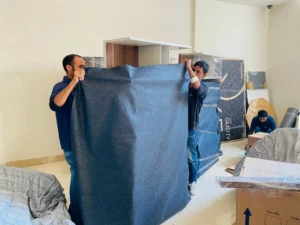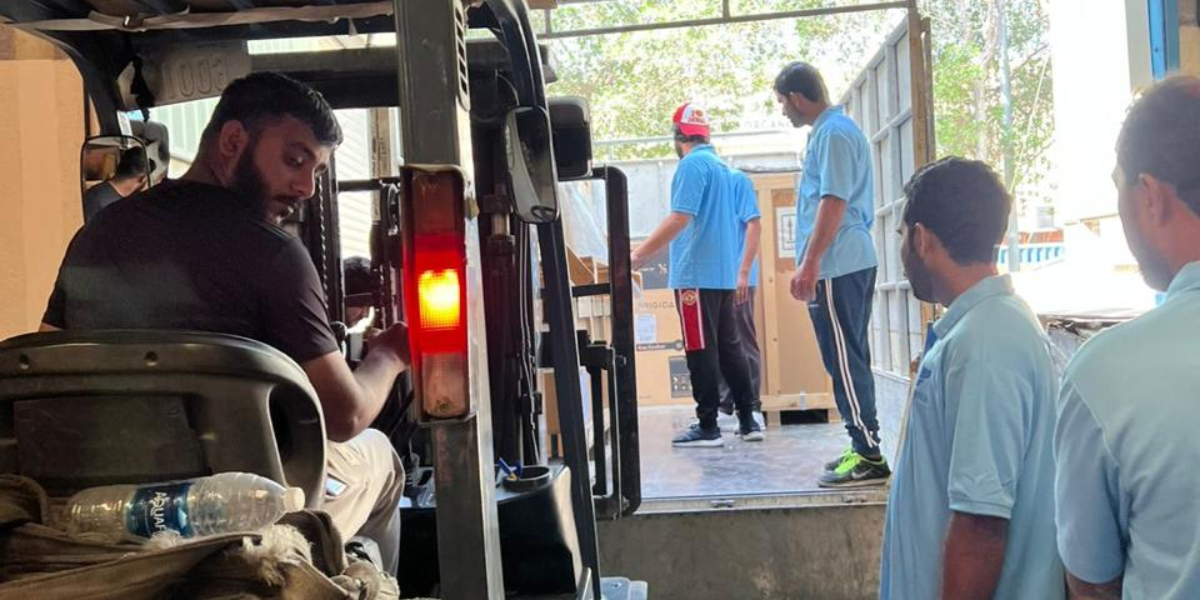Relocating your business’ IT infrastructure is a delicate, high-stakes endeavor. Miss a cable, damage a server, or misplace a component, and your operations could be down for days. That’s why choosing the right IT moving company in Dubai is vital to ensuring that your transition is smooth, safe, and successful.
In this post, we break down the must-have criteria you should use when evaluating IT movers, share good questions to ask, and explain how to identify a partner that fits your needs.

Why Choose a Specialist IT Mover vs. a General Mover?
First, let’s clarify why you shouldn’t entrust your servers, networking gear, and critical systems to just any moving company:
- Technical expertise: IT movers understand how to disassemble, transport, and reassemble hardware (racks, servers, switches) safely, minimizing risk.
- Data security awareness: They are accustomed to working with sensitive systems, applying chain-of-custody protocols, and handling backups.
- Reduced downtime: Their experience helps minimize business interruption by planning and executing moves efficiently.
- Insurance & liability: A specialist mover typically offers the kind of coverage and accountability that tech equipment demands.
Because of this, hiring the right IT moving company in Dubai is more than just based on cost — it’s about trust, reliability, and technical competence.

Key Criteria for Choosing the Right IT Moving Company in Dubai
When selecting an IT moving company for your business in Dubai, here are the important factors to evaluate:
Experience & Track Record
Look for years of experience in the Dubai/UAE market, a solid portfolio of past IT moves, and references from satisfied clients. An experienced company will be familiar with the local regulations, climate, building access, and potential challenges.
Technical Certifications & Training
Ensure that the moving company’s technicians are certified and trained in handling IT hardware, servers, network equipment, and structured cabling. This minimizes the risk of damage during the move.
Security & Compliance
IT moves often involve sensitive data and hardware. A good IT moving company will follow strict chain-of-custody processes, maintain confidentiality agreements (NDAs), and ensure that your data is secure during transport.
Insurance & Liability Coverage
Ensure the company offers adequate insurance to cover any potential damage, loss, or delays that may occur during the move. This will protect your business from unexpected risks.
Logistics & Equipment
Ask whether the company uses specialized packing materials, such as shock-absorbing crates, and if they have secure, climate-controlled vehicles. These features are important for protecting sensitive IT equipment from damage during transport.
Downtime Planning & Execution
A good IT moving company will plan the move in phases, schedule after-hours work to minimize disruption, and create backup plans for unforeseen issues. This ensures that your business experiences minimal downtime.
Local Knowledge
A mover with local expertise will know the ins and outs of Dubai’s building regulations, access points, parking constraints, and permit requirements, avoiding delays during the move.
Support & After-move Services
Find out whether the company offers additional services like equipment racking, cabling, network testing, and decommissioning old systems. A full-service IT moving company ensures the job is done end-to-end, leaving you with systems ready to function as soon as the move is complete.
Cost Transparency & Contracts
It’s crucial that the company provides clear pricing without hidden charges. The contract should outline all services, including labor, packing, transit, reinstallation, and any additional charges.

Questions You Should Ask Prospective IT Moving Companies
When evaluating quotes, ask these questions to separate competent firms from those less prepared:
What was your most challenging IT move and how did you handle it?
Look for anecdotes about data center or large-scale office moves.
Can you provide references from clients in Dubai?
Speak directly with past clients.
What is your chain-of-custody process for drives or storage devices?
You want documented control and accountability at every step.
Do you perform pre-move audits or site surveys?
Detailed surveys help identify constraints early (e.g., stairwells, power, cooling, wiring).
How do you handle downtime minimization?
Expect a plan (after-hours, phased moves, contingencies).
What losses or damages are covered by your insurance?
Request a copy of their insurance policy.
What is your contingency plan for delays or failures?
There should be backup strategies (spare parts, parallel setups, alternate transport).
Do you perform post-move testing, validation, and support?
The move isn’t done until systems are verified functional.
Step-by-Step Framework for Selecting Your IT Moving Partner
Here’s a recommended process you can follow when hiring an IT mover:
-
Define your scope & objectives
-
List hardware, quantity, cabling, power, racks, peripherals, downtime tolerance, and target move date.
-
-
Request multiple proposals
-
Share your scope with at least 3 qualified IT moving firms in Dubai. Ask for breakdowns and timelines.
-
-
Perform site visits / surveys
-
Walk the current and destination sites with each provider to surface constraints early.
-
-
Compare not just cost, but risk & value
-
The cheapest may not be the most reliable. Evaluate insurance, experience, and support.
-
-
Check references & past case studies
-
Confirm their claims by talking to real clients.
-
-
Agree on a detailed contract & SLAs
-
Define deliverables, milestones, penalties for downtime or delays, and acceptance tests.
-
-
Run a pilot or partial move (if feasible)
-
For large moves, test with non-critical systems if possible.
-
-
Maintain communication & oversight by an internal team
-
Assign someone from your IT team to liaise, anticipate problems, and monitor progress.
-
Common Pitfalls & How to Avoid Them
-
Underestimating cabling complexity: Many firms neglect detailed labeling, which leads to rework.
→ Insist on standardized labeling and diagrams. -
Ignoring temperature/shock control: Sensitive hardware might suffer damage in Dubai’s climate.
→ Use climate-controlled vehicles and shock-monitoring crates. -
Overlooking building logistics: Loading docks, elevator times, parking constraints, and permits are often ignored.
→ Ensure the mover has experience navigating Dubai buildings. -
Not aligning downtime windows: Movers may schedule during business hours.
→ Lock in off-peak hours or weekends. -
Lack of accountability post-move: No testing or support after the move leads to “move done” but equipment is dysfunctional.
→ Require validation, testing, and a support window in the contract.
Sample Excerpt
When you’re preparing to relocate your data center, server room, or office tech infrastructure in Dubai, it’s not just about moving boxes — it’s about protecting your business continuity. A misstep during transport can cost you downtime, data loss, or hardware damage.
That’s why at ProMoversUAE, we emphasize meticulous planning, risk mitigation, and accountability. From our on-site surveys and labeling systems to chain-of-custody controls, climate-controlled transit, and post-move verification, we treat every component as mission-critical.
Before you sign on the dotted line with a mover, ask for their portfolio, their disaster-recovery plan, their insurance policy, and real client feedback. Because when your IT systems are involved, the true cost of failure may far outweigh the savings from a cheaper move.
